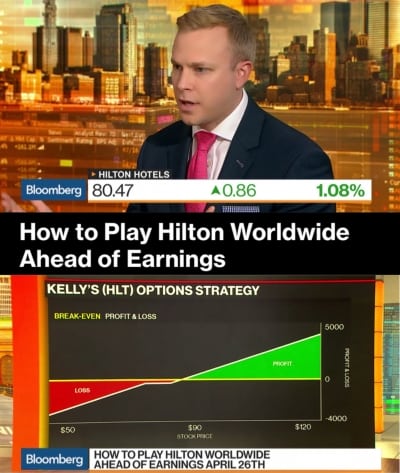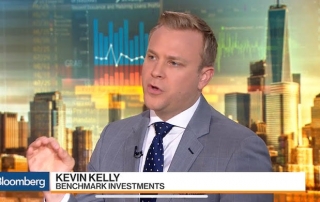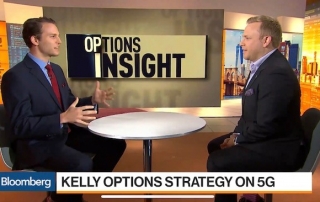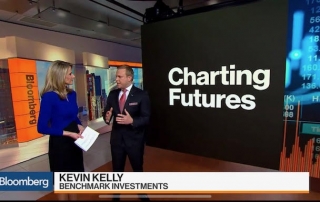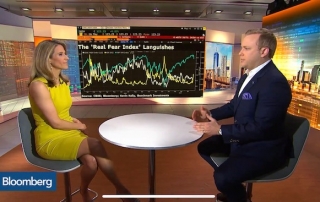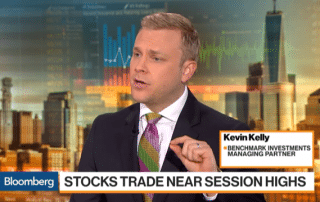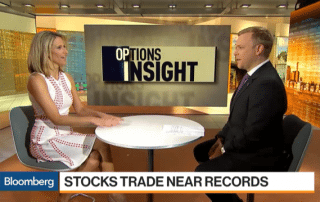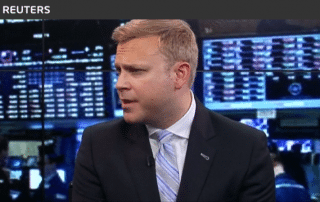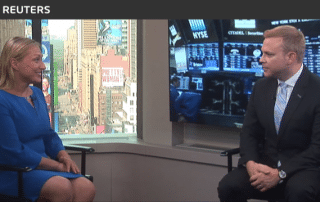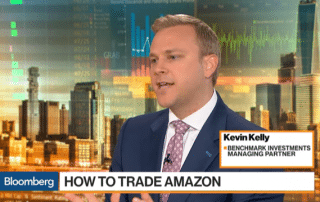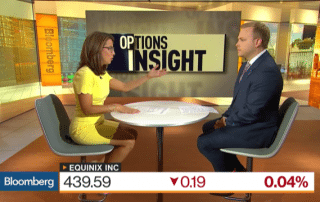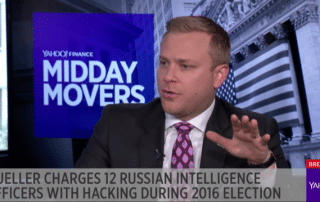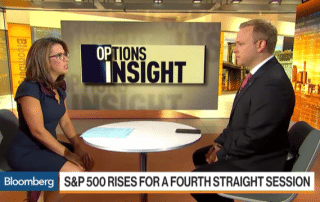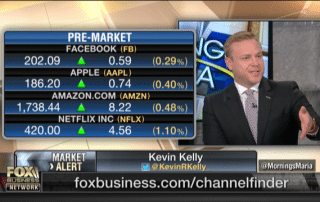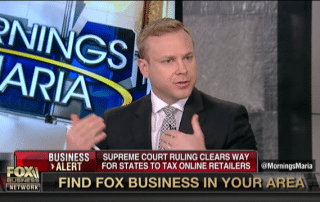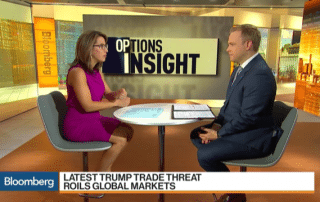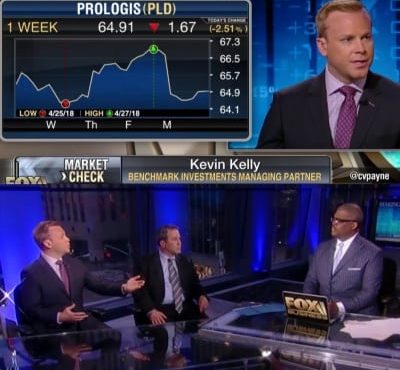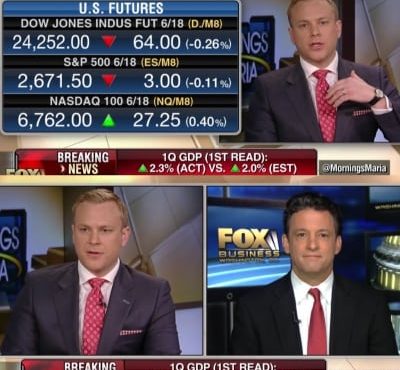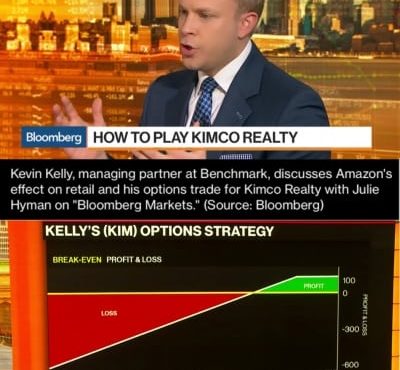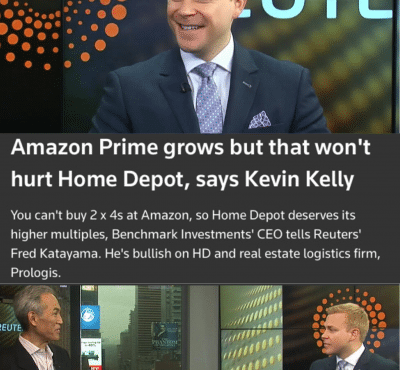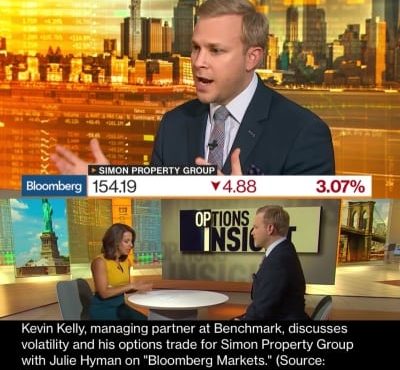- Hilton Worldwide (HLT) is a constituent of the HOTL Index
- Trade: Risk Reversal
- Sell the $72.5 HLT January 2019 Put for $3.60
- Buy the $80 HLT January 2019 Call for $7.50
- Trade Costs $3.90 for Unlimited Upside
Hilton Worldwide Holdings is focused on its high-margin business, fee-based hotels, to reach its revenue and profit target in 2018 after the spinoff last year of its owned-asset and timeshare units. The shift to an asset-light model will likely be driven by Hilton’s slew of new midscale hotel brands, including Tru, Curio and Tapestry. It also has the biggest global pipeline, mostly managed and franchised hotels, to diversify regionally and compete with peers such as Marriott.
Benchmark’s Kevin Kelly went on Bloomberg TV to discuss an options trade on Hilton Worldwide (HLT) to position into the company’s upcoming earnings report. Hilton’s implied volatility has increased going into this quarters earnings above it historical average as the company engages in an asset-light shift, strict cost discipline and midscale-segment focus is widening margin. The company recently repurchased $1.2 billion worth of shares from HNA at a discount.
Other points include:
- Earnings on 4/26
- Implied volatility is higher than average (3.85% vs.2.36%)
- Hilton’s asset-light shift, strict cost discipline and midscale-segment focus is widening margin.
- More than 70% of Hilton’s hotels are based in the U.S., which drives Ebitda.
- The company aims to expand overseas, with more than half of its pipeline abroad.
- About 70% of Hilton’s hotel rooms are classified upscale or above by industry researcher STR.
- Hilton Worldwide Holdings is focused on its high-margin business, fee-based hotels, to reach its revenue and profit target in 2018 after the spinoff last year of its owned-asset and timeshare units.
- The shift to an asset-light model will likely be driven by Hilton’s slew of new midscale hotel brands, including Tru, Curio and Tapestry.
In December, Hilton also launched Connected Room, a high-tech room that enables guests to personalize and control their stay from its app. The digital key is now available in more than 350,000 hotel rooms and 2,500 hotels worldwide.
Hotel operators are pursuing more M&A and partnerships to build inventory to compete with online travel agents (OTAs) and alternative lodging sites for leisure and long-stay travelers. They’re also offering lower rates on their websites to build loyalty and increase more-profitable direct bookings. Yet Airbnb offers up to 4 million rental units, while online travel agencies list more than 400,000 properties, dwarfing the biggest hotel chains and allowing competitive pricing to attract cost-conscious travelers.

